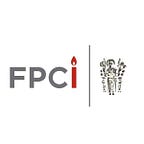The Vaccine Apartheid Phenomenon in Africa and Reflection of Inequity COVID-19 Vaccine Distribution Between Rich and Poor Countries
Written by M. Rizky Mahendra
Since 2019, countries in the world have been facing many economic, political, social, and health shocks and challenges that are not easily faced with the COVID-19 pandemic, There was a massive push for vaccine development, through large subsidies for research and development to drug companies, pre-orders of vaccines, and other support by the US, Russia, China, and some European countries. This ultimately led to the development of several effective Covid-19 vaccines in an unprecedented short timeframe. subsequent vaccine production and distribution has exposed and intensified global inequality. Three features stand out: blatant vaccine grabs by rich countries; protection of patent rights by governments in advanced countries, which prevents wider vaccine production; and the use of vaccine distribution to promote both nationalism and diplomatic ‘soft power.’ (Jayati Ghosh, 2019)
The Covid-19 Vaccines Global Access Facility (COVAX), led by the World Health Organisation (WHO) and others, was established precisely to prevent hoarding by rich countries and ensure access for the world’s poor. But the facility remains underfunded, and, even worse, it has not been able to purchase the vaccines required for free distribution to poor countries as planned. Nevertheless, vaccination campaigns will remain inequity. The Africa CDC has previously warned that Covid-19 could become endemic in the region if the vaccination process takes four to five years. The rising risk of global vaccine apartheid has resulted in a surge of appeals, including from WHO Director-General Dr Tedros Adhanom Ghebreyesus, against vaccine nationalism by high-income countries, on the grounds that it risks prolonging the global pandemic. At the World Trade Organization (WTO) level, South Africa,has been lobbying for a waiver of IP rules regarding Covid-19 vaccines and treatments. Rich countries opposition to the proposal has been steadfast. It remains to be seen how Africa has a disparity even WTO secretary-general, Ngozi Okonjo-Iweala, may galvanize the debate around global vaccine distribution and equity. (Teneo Africa, 2021)
The vaccine inequity has been a disaster for low income countries in this essay will explain specifically about Africa, meanwhile African countries struggle to face the covid-19 pandemic it getting worse when African countries have a financial incapability on attempting a research and product a covid19 vaccine which show the disparities between poor and rich countries, South African President Cyril Ramaphosa stated that wealthy nations hogged COVID-19 shots while millions in poor countries died waiting for them it would amount to “vaccine apartheid” South Africa have been pushing for a waiver on some intellectual property (IP) rights for vaccines and medicines at the World Trade Organization. “A situation in which the populations of advanced, rich countries are safely inoculated while millions in poorer countries die in the queue would be tantamount to vaccine apartheid.” Sub-Saharan Africa has administered the fewest vaccines relative to its population of any region, with roughly 8 doses per 1,000 people versus 150 doses per 1,000 people globally, according to the World Health Organization. (WHO, 2021)
The vaccine inequality graphs
(source: https://www.csis.org/analysis/africa)
We can summarize that overall, the global distribution has been unequal, unjust, and incompetent. This phenomenon will halt the resolution of the ongoing pandemic and creates concerns about humanity’s ability to cooperate to address the even greater challenges ahead. Vaccine nationalism or apartheid is self-defeating because it prolongs the crisis, economic downturn and suffering for everyone, she said, stressing that investment in regional vaccine manufacturing hubs is necessary for future global safety. Noting that vaccine inequality translates into social and economic inequality, she said any delay in response to the current crisis equates to more loss of life and increased poverty. It is necessary a global action that effectively address this issue. (Alexander Winning, 2021)
References
- Jayati Ghosh 2019, “Vaccine apartheid: global inequities in Covid-19 vaccine production and distribution”. https://www.openglobalrights.org/vaccine-apartheid-global-inequities-in-covid-vaccine-production-and-distribution/ (accesed 18 august 2021)
- Teneo africa 2021 “SUB-SAHARAN AFRICA: Pandemic downsides abound amid ‘vaccine apartheid”. Teneo Official Press
- WHO 2021 “Vaccine inequity undermining global economic recovery”. https://www.who.int/news/item/22-07-2021-vaccine-inequity-undermining-global-economic-recovery (Accesed 18 august 2021)
- Alexander Winning 2021 “South Africa warns of ‘vaccine apartheid’ if rich countries hog shots”. https://www.reuters.com/world/africa/south-africa-warns-vaccine-apartheid-if-rich-countries-hog-shots-2021-05-10/ (Accesed 18 august 2021)
